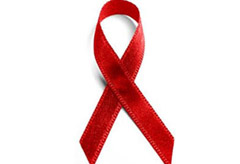A quarter of HIV victims don’t know they're infected
One in four of sufferers are unaware of their HIV status, according to new research and although there's been an overall decrease in the numbers of cases being diagnosed, the Health Protection Agency and the Terrence Higgins Trust say that there's plenty more work to be done.

One in four of sufferers are unaware of their HIV status, according to new research and although there's been an overall decrease in the numbers of cases being diagnosed, the Health Protection Agency and the Terrence Higgins Trust say that there's plenty more work to be done.
With World Aids Day just around the corner, the Health Protection Agency (HPA) is calling for more widespread testing for HIV to enable earlier diagnosis.
An estimated 86,500 people were living with HIV in 2009, but worryingly almost 22,500 of these cases were undiagnosed. Figures suggest that 52 per cent of people newly diagnosed in 2009 were diagnosed after the time when treatment is most effective.
Dr Paul Cosford, HPA’s director of Health Protection Services, says: 'The figures suggest that extra effort is needed to ensure more people are aware of their HIV status. This will enable faster access to treatment, improve survival and reduce the risk of transmission to partners.'
'It’s crucial to remember that using a condom with all new or casual sexual partners is the best way to prevent sexually transmitted infections, including HIV,' he added.
Although there was an overall decrease in the number of cases being diagnosed, Dr Valerie Delpech, an HIV specialist from the HPA, says: ‘We’re concerned that many people are still unaware of their HIV status and that half are diagnosed late.’
Sir Nick Partridge, chief executive of the Terrence Higgins Trust, added his support to the campaign, saying: 'We have to re-inforce that condoms are anticipated, expected and used every time. The decrease in new HIV diagnoses last year shows that we can drive down new infections, and that it takes the whole community working together to achieve this.'
Celebrity news, beauty, fashion advice, and fascinating features, delivered straight to your inbox!
'We need to make regular testing for HIV an expected part of safer sex,' he concluded.
Let us know your views below.